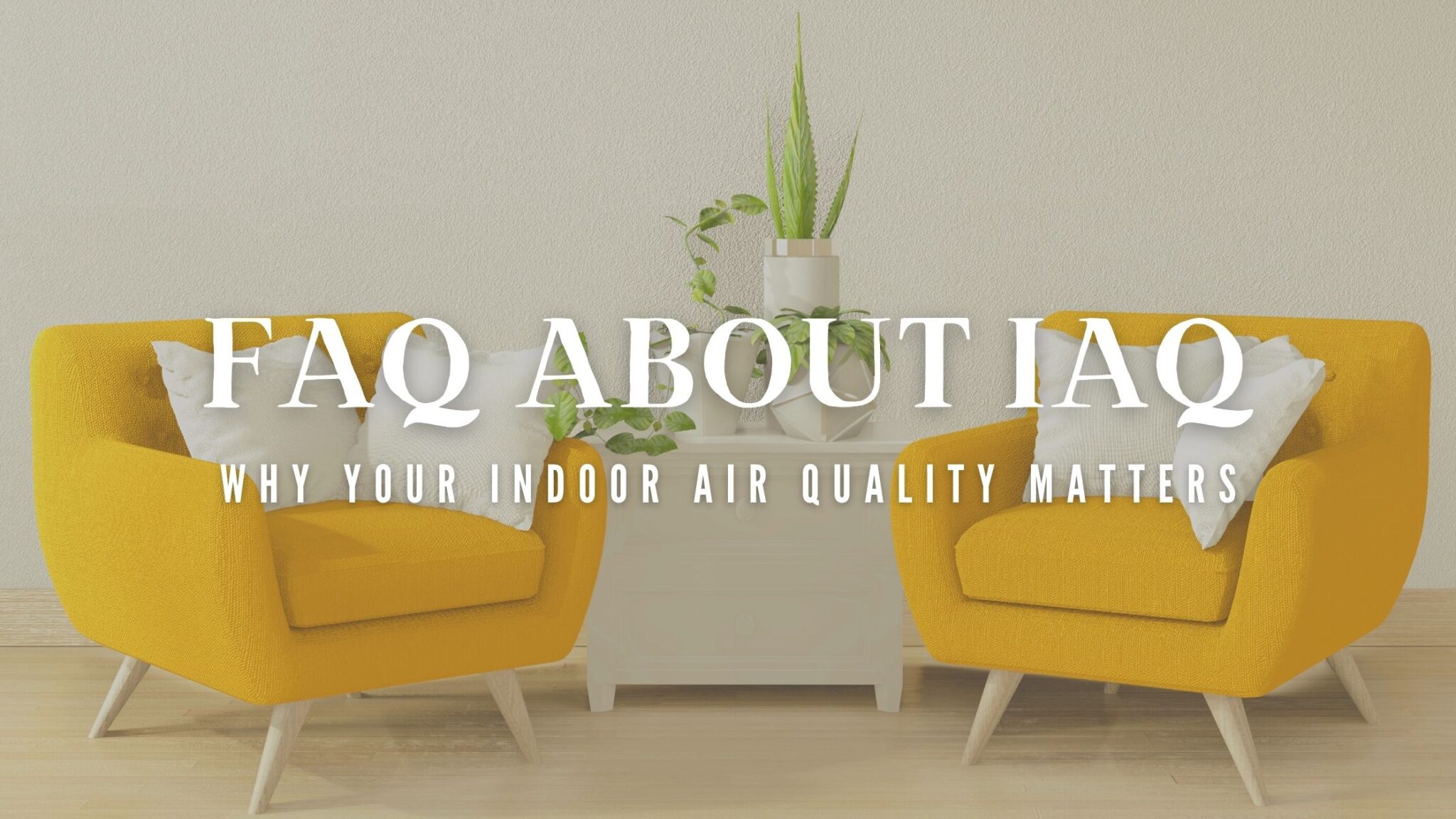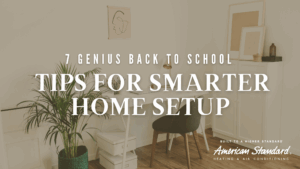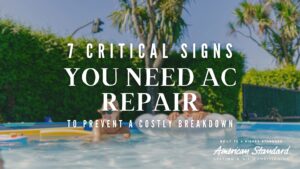FAQ About IAQ – Why Your Indoor Air Quality Matters
When it comes to your indoor air, the EPA says it is probably 2-5 times worse than outdoor air. Yikes! To help our customers understand more about indoor air quality (IAQ), we put together a list of 10 frequently asked questions about the topic, along with their answers. Read on to learn about indoor air quality and its importance, especially to Huntsville, homes!
1. Why Is Indoor Air Quality An Issue?
According to the EPA, people, on average, spend about 90 percent of their time indoors. Of that 90 percent, 65 is spent at home. To make matters worse, those who are most susceptible to indoor air pollution are the ones who are home the most: children, pregnant women, the elderly, and those with chronic illnesses.
Children breathe in 50 percent more air per pound of body weight than adults do. EPA studies have found that pollutant levels inside can be two to five times higher than outdoors, creating a less than ideal situation for our families. After certain regular indoor activities (cooking, cleaning, painting, etc.), home air pollution levels can even be up to 100 times higher than outdoors.
2. Can the Air Inside Our Homes Be Bad for Us?
In an attempt to conserve energy, buildings are increasingly being constructed more and more airtight. Storm windows, insulation, caulking, and weather stripping are a few ways we have managed to keep air, hot or cold, from escaping. Unfortunately, when air is trapped in a building, pollutants within the air are also trapped, which can have negative effects on the health of the people living inside the home.
3. What Are the Sources of Pollutants?
According to the National Safety Council, there are many sources of pollutants in the home. Obvious ones are chemicals, cleaning products, and pesticides. Less obvious are pollutants caused by such simple tasks as cooking, bathing, or heating the home. Fortunately, there are easy steps that everyone can take to reduce the potential for indoor air pollution and to improve the quality of the air they breathe.
4. What Are the Different Types of Pollutants?
There are three different types of indoor air pollutants.
-
-
- Particulates: dust, pollen, dust mites, animal dander, carpet fibers, and lint.
- Micro-organisms: mold, influenza, fungi, viruses, bacteria, and germs.
- Toxins (gases): benzene chemical vapors, formaldehyde, carbon monoxide, paint, pesticides, carpet fumes, pet odors, ozone, cleaning vapors, and smoke.
-
5. How Do You Know If the Air Inside Your Home Is Dangerous to Your Health?
According to the EPA, it is difficult to determine which pollutant or pollutants are the sources of a person’s ill health, or even if indoor air pollution is the problem. Many indoor air pollutants cannot be detected by our senses (e.g., sight or smell) and the symptoms they produce can be vague and sometimes similar, making it hard to attribute them to a specific cause.
Some symptoms may not show up until years later, making it even harder to discover the cause. Common symptoms of exposure to indoor air pollutants include: headaches, tiredness, dizziness, nausea, itchy nose, and scratchy throat. More serious effects are asthma and other breathing disorders and cancer. It’s important to eliminate pollutants from the air in your home to rid this possibility of developing health issues.
6. How Does Bad Air Quality Affect Children?
According to the EPA, children may be more susceptible to environmental exposures than adults and, because of their developing systems, they’re particularly vulnerable to their effects.
Take asthma for example. About 4.2 million children in the United States, and more than 12.4 million people total, are affected by asthma each year. A recent study, published in the American Journal of Respiratory and Critical Care Medicine concluded that 65 percent of asthma cases among elementary school-age children could be prevented by controlling exposure to indoor allergens and environmental tobacco smoke (ETS). By controlling biological contaminants (e.g., dust mites and cat allergens), asthma cases could be reduced by 55 to 60 percent.
7. How Can I Find An Indoor Air Quality System That’s Right for My Home?
Bunns & Bennett has a team dedicated to improving the quality of life for our customers starting with the air you breathe inside your home. We offer a variety of air purification solutions to suit your individual needs for improving your indoor air quality.
Our products include top of the line air purification solutions that can be installed in most existing ductwork. Our process consists of addressing your concerns, an in-home consultation, and quick, yet thorough installation. A phone call is all that stands between you and improved home indoor air quality!
8. What’s Included In An Indoor Air Quality Consultation?
During your appointment, our IAQ consultant will walk with you throughout your home to observe existing conditions while listening to your experiences and concerns about your indoor air quality needs. Our IAQ consultant will sit with you to prepare the proposal based on the needs you have expressed. This proposal will state the products and the exact cost figures of the systems we think will work best for your home and family.
9. What’s Involved In the Installation of Indoor Air Quality Products?
Our installation team will arrive at your home and will begin the process of installing your IAQ products. Upon completion, you will be asked to sign the service ticket and any other paperwork that is applicable to your installation. Our installation team will clean up and address any final questions you may have.
10. Which Air Purification Products Do You Recommend?
The answer to this question depends on the HVAC system you have installed in your home or business. There are many great in-duct options, such as the iWave-R, Reme Halo LED, and Reme Halo. We also have a variety of filter options you may add to your existing system. If it’s time to replace your HVAC system, we can design a solution for you which incorporates precise air purification to meet the needs of your home and family. Give us a call today to speak with one of our comfort consultants, and Be Comfortable with the air you breathe inside your home!
Contact Us
Want more information on our indoor air quality solutions? Contact Bunns & Bennett today by calling (256) 536-0967 or emailing [email protected]. We’re your local American Standard Customer Care Dealer in Huntsville, AL. Our professional technicians are experts at performing maintenance tune-ups on any HVAc system.
Be sure to follow us on Facebook and Instagram for helpful tips regarding your HVAC system. FAQ about IAQ FAQ about IAQ FAQ about IAQ FAQ about IAQ FAQ about IAQ






